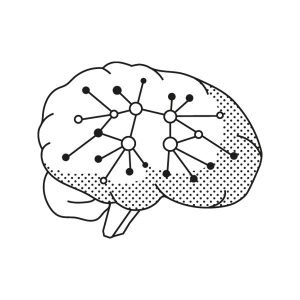Imagine having the ability to absorb information quickly, retain it effortlessly, and apply it creatively in real life. To many, that sounds like a superpower. But the truth is, anyone can dramatically improve how they learn—once they understand how learning really works.
The Foundation of Lifelong Learning
From the moment we begin life, learning is our constant companion. As we grow, every new fact, skill, or experience adds to our understanding of the world, helping us adapt and make better decisions. In a world that’s changing at breakneck speed, the ability to keep learning is not just a nice skill to have—it’s essential for survival.
Consider the people who fail to adapt to new technologies, new ideas, or changing job markets. They risk becoming obsolete, much like organisms that fail to evolve in nature. On the other hand, those who embrace continuous learning can pivot, grow, and stay relevant no matter how the world shifts around them.
The Greatest Obstacle: What You Think You Know
One of the biggest barriers to learning isn’t a lack of intelligence or opportunity—it’s our own ego. When we believe we already know something, we unconsciously resist new information that might challenge our existing views. This defensiveness keeps us trapped in outdated thinking.
True learning requires intellectual humility—the willingness to admit what we don’t know and the courage to change our minds. The first step toward becoming a better learner is simple but profound: recognize your ignorance and choose to address it.
Why We Struggle with Learning
Many of our struggles with learning stem from misconceptions we adopt early in life. We’re taught that being busy means being productive, that visible activity equals progress. But real learning often happens in moments of reflection, conversation, and even daydreaming. It’s not about looking smart; it’s about becoming smart.
Another common stumbling block is our desire for shortcuts. The internet is full of promises: “Learn a language in a week!” or “Master coding in 30 days!” These claims are seductive but misleading. Mastery takes time, effort, and patience. Real learning goes beyond memorizing facts—it’s about building deep understanding that empowers innovation and creativity.
And then there’s the modern plague of distraction. Smartphones, notifications, and endless digital content fragment our attention, making it difficult to focus deeply on any one subject. But focus is where learning happens. Building systems and habits that minimize distractions is crucial for meaningful progress.
The Power of Deliberate Practice
When we talk about accelerated learning, we’re not suggesting an escape from hard work. Rather, it’s about working smart—finding methods that lead to real, lasting knowledge instead of wasted effort.
One such method is deliberate practice. This approach involves intentionally pushing yourself just beyond your current abilities, into that sweet spot where learning feels challenging but achievable. Elite performers across fields—from athletes to musicians to scientists—use deliberate practice to steadily grow their expertise.
It’s important to accept that stepping outside your comfort zone carries the risk of failure. You might misunderstand new concepts or struggle with unfamiliar skills. But every failure is a lesson in disguise. The discomfort of feeling “stupid” for a moment is a small price to pay for long-term growth.
Two Sources of Learning: History and Experience
We gain knowledge primarily from two sources: the experiences of others (history) and our own direct experiences.
Learning from history allows us to borrow wisdom from those who came before us. Patterns repeat; many of today’s challenges mirror those faced by previous generations. However, it’s important to remember that knowledge is not static. What we accept as truth today may be disproven tomorrow, especially in rapidly evolving fields like medicine or technology. History provides valuable lessons, but they must be continually reexamined as our understanding grows.
Learning from personal experience is equally crucial. But it’s not enough to simply live through events; reflection is key. Without reflection, we fall into what’s called “single loop learning”—repeating mistakes without improvement. Instead, “double loop learning” involves analyzing outcomes, questioning assumptions, and making conscious adjustments based on feedback. This kind of reflective practice transforms experience into wisdom.
Proven Techniques to Learn Better
Two evidence-based techniques can significantly enhance your ability to learn and retain information: the Feynman Technique and spaced repetition.
The Feynman Technique
Developed by Nobel Prize-winning physicist Richard Feynman, this method ensures you truly grasp new concepts by forcing you to explain them in the simplest terms possible. Here’s how it works:
- Choose a concept you want to understand.
- Pretend to teach it to a child, ideally a sixth-grader. Write or speak your explanation.
- Identify gaps in your understanding where you struggle to simplify.
- Review and refine your explanation until it’s clear and accurate.
This process exposes any weak spots in your knowledge and forces you to confront them directly. If you can’t explain an idea simply, you probably don’t understand it deeply.
Spaced Repetition
Our brains aren’t designed for cramming; they’re wired for gradual, repeated exposure. Spaced repetition leverages this by revisiting material at increasing intervals. This method aligns with the brain’s natural forgetting curve—repeating information just before you’re about to forget it strengthens memory and retention over time.
Unlike rote memorization, which often fades quickly, spaced repetition creates long-lasting knowledge. It transforms brief exposure into enduring mastery by forcing regular retrieval from memory.
The Journey of a Lifelong Learner
Accelerated learning is not about cutting corners—it’s about maximizing the effectiveness of your effort. With humility, reflection, focus, and the right techniques, anyone can become a better learner.
As the philosopher Nietzsche once suggested, the more we understand the world, the more we understand ourselves. Every new concept we master not only enriches our knowledge but also shapes our identity. In a world overflowing with information, the ability to learn well is one of the greatest advantages you can develop.





